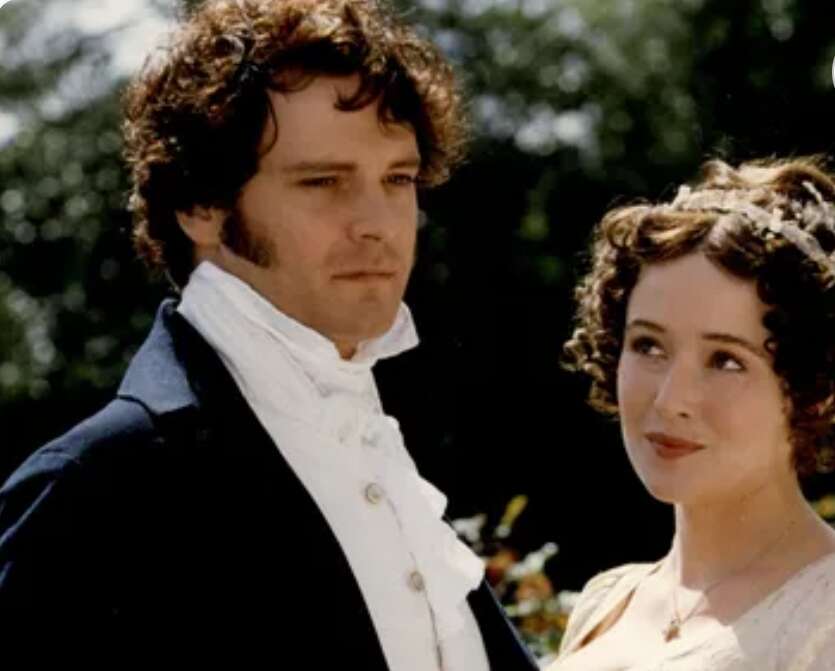Mr. Bennet is the household patriarch. He’s keen on his two eldest daughters—particularly his favourite, Elizabeth—however takes a passive curiosity within the youthful ones, finally failing to curb their infantile instincts. An clever however eccentric and sarcastic man, he doesn’t take care of society’s conventions and mocks his spouse’s obsession with discovering appropriate husbands for his or her daughters. As a number of students have famous, nonetheless, Mrs. Bennet is rightfully involved. Due to an entail, the modest household property is to be inherited by William Collins, Mr. Bennet’s nephew, who’s the following male in line. Certainly, as Austen scholar Mary Evans famous, “If Mrs. Bennett is barely loopy, then maybe she is so as a result of she perceives extra clearly than her husband the potential destiny of her 5 daughters if they don’t marry.” Sadly, Mrs. Bennet’s fervor and indelicacy typically work towards her pursuits. A lady of little sense and far self-pity, she indulges her full of life youngest daughters.
All through the novel, the Bennet sisters encounter a number of eligible bachelors, together with Charles Bingley, Darcy, Lieutenant George Wickham, and Collins. Bingley has just lately let Netherfield property, which neighbors the Bennets’ dwelling, Longbourn. Austen describes him as “handsome and gentlemanlike; [having] a nice countenance and straightforward, unaffected manners.” He has come by his fortune by way of his household’s curiosity in commerce, which was seen as a much less respectable technique of acquiring wealth than by inheriting it, as his pal Darcy has carried out. Darcy is clearly a product of this hierarchical pondering: he believes within the pure superiority of the rich landed gentry. He’s smug however perceptive.
Darcy’s estates had been as soon as managed by Wickham’s father, however he and Wickham are now not pleasant. Wickham is enticing and charming, making him instantly widespread among the many ladies within the close by city of Meryton, the place he and different troopers have been stationed. Collins, then again, is “not a wise man, and the deficiency of nature had been however little assisted by schooling or society.” He’s a priest whose patron, the controlling Woman Catherine de Bourgh, is Darcy’s aunt.Different supporting characters within the novel embrace Elizabeth’s pal Charlotte Lucas, who’s described as wise and nearing an age the place marriage is unlikely; Charlotte’s dad and mom, Sir William and Woman Lucas; Mrs. Bennet’s brother, Edward Gardiner, who works in commerce, and his spouse, each of whom are beneficiant and well-grounded; Bingley’s sisters, the snobbish and scheming Caroline and Louisa Hurst; and Darcy’s 16-year-old sister, Georgiana, who’s painfully shy however good-humored.The novel opens with one of the vital well-known traces in English literature: “It’s a fact universally acknowledged, {that a} single man in possession of a success, should be in need of a spouse.” The assertion is seemingly what Mrs. Bennet thinks as she units her sights on the newly arrived Bingley, who she is bound will make an acceptable husband for one among her daughters. At a ball, Bingley takes a right away curiosity within the lovely and shy Jane. The encounter between his pal Darcy and Elizabeth is much less cordial. Though Austen reveals them intrigued by one another, she reverses the conference of first impressions: the satisfaction of rank and fortune and prejudice towards the social inferiority of Elizabeth’s household maintain Darcy aloof, whereas the satisfaction of self-respect and prejudice towards Darcy’s snobbery maintain Elizabeth equally aloof.
The pompous Collins quickly arrives, hoping to marry one of many Bennet sisters. Mrs. Bennet steers him towards Elizabeth, however the latter refuses his supply of marriage. He as a substitute turns into engaged to her pal Charlotte. Throughout this time, Elizabeth encounters the charming Wickham. There’s a mutual attraction between the 2, and he informs her that Darcy has denied him his inheritance.
After Bingley abruptly departs for London, Elizabeth’s dislike of Darcy mounts as she turns into satisfied that he’s discouraging Bingley’s relationship with Jane. Darcy, nonetheless, has grown more and more keen on Elizabeth, admiring her intelligence and vitality. Whereas visiting the now-married Charlotte, Elizabeth sees Darcy, who professes his love for her and proposes. A stunned Elizabeth refuses his supply, and, when Darcy calls for a proof, she accuses him of breaking apart Jane and Bingley and of denying Wickham his inheritance. Darcy subsequently writes Elizabeth a letter through which he explains that he separated the couple largely as a result of he didn’t consider Jane returned Bingley’s affection. He additionally discloses that Wickham, after squandering his inheritance, tried to marry Darcy’s then 15-year-old sister in an try to realize possession of her fortune. With these revelations, Elizabeth begins to see Darcy in a brand new mild.
Shortly thereafter the youngest Bennet sister, Lydia, elopes with Wickham. The information is met with nice alarm by Elizabeth, for the reason that scandalous affair—which is unlikely to finish in marriage—may spoil the status of the opposite Bennet sisters. When she tells Darcy, he persuades Wickham to marry Lydia, providing him cash. Regardless of Darcy’s try and maintain his intervention a secret, Elizabeth learns of his actions. On the encouragement of Darcy, Bingley subsequently returns, and he and Jane grow to be engaged. Lastly, Darcy proposes once more to Elizabeth, who this time accepts.The work, which Austen initially titled First Impressions, is the second of 4 novels that Austen printed throughout her lifetime. Though Pleasure and Prejudice has been criticized for its lack of historic context (it’s seemingly set both in the course of the French Revolution [1787–99] or the Napoleonic Wars [1799–1815]), the existence of its characters in a social bubble that’s not often penetrated by occasions past it’s an correct portrayal of the enclosed social world through which Austen lived. She depicted that world, in all its personal slim satisfaction and prejudice, with loyal accuracy and satire. On the identical time, she positioned at its middle, as each its prime actor and most perceptive critic, a personality so nicely conceived and rendered that the reader can not however be gripped by her story and want for its completely happy denouement. Ultimately, Austen’s novel has remained widespread largely due to Elizabeth—who was reportedly Austen’s personal favourite amongst all her heroines—and due to the enduring enchantment to women and men alike of a well-told and doubtlessly fortunately ending love story.
Films and different variations
Pleasure and Prejudice impressed numerous stage, movie, and tv productions. Notable variations included the 1940 movie with Greer Garson as Elizabeth and Laurence Olivier as Darcy, the 1995 TV miniseries starring Jennifer Ehle and Colin Firth, and the 2005 film that includes Keira Knightley and Matthew Macfadyen. The novel additionally served as a premise for a myriad of books on the flip of the Twenty first century, together with the very best vendor Bridget Jones’s Diary (1996) by Helen Fielding (which was adopted by a variety of sequels and tailored into a well-liked film sequence [2001–16] starring Renée Zellweger, Firth, and Hugh Grant). Different such books included Pleasure and Prejudice and Zombies (2009) by Seth Grahame-Smith (additionally tailored right into a film [2016]) and Sofia Khan Is Not Obliged (2015) by Ayisha Malik, through which a Twenty first-century Muslim girl is intrigued by her sullen tattooed neighbor. These interpretations confirmed the common and enduring enchantment of Pleasure and Prejudice and its themes.









